Kwara Records 35% Increase In Public Hospital Patronage
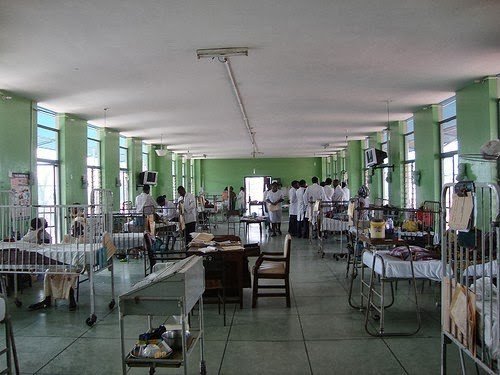 Kwara state has recorded at least a 35 percent rise in hospital patronage in the last three to four months, as the government focused on basic healthcare and equipping of the General Hospital Ilorin.
Kwara state has recorded at least a 35 percent rise in hospital patronage in the last three to four months, as the government focused on basic healthcare and equipping of the General Hospital Ilorin.
The state deputy governor, Kayode Alabi disclosed this in Ilorin, the state capital during the closing of a weeklong-free medical and surgical interventions undertaken by the state government.
Okowa denies receiving N3.5bn from U.S
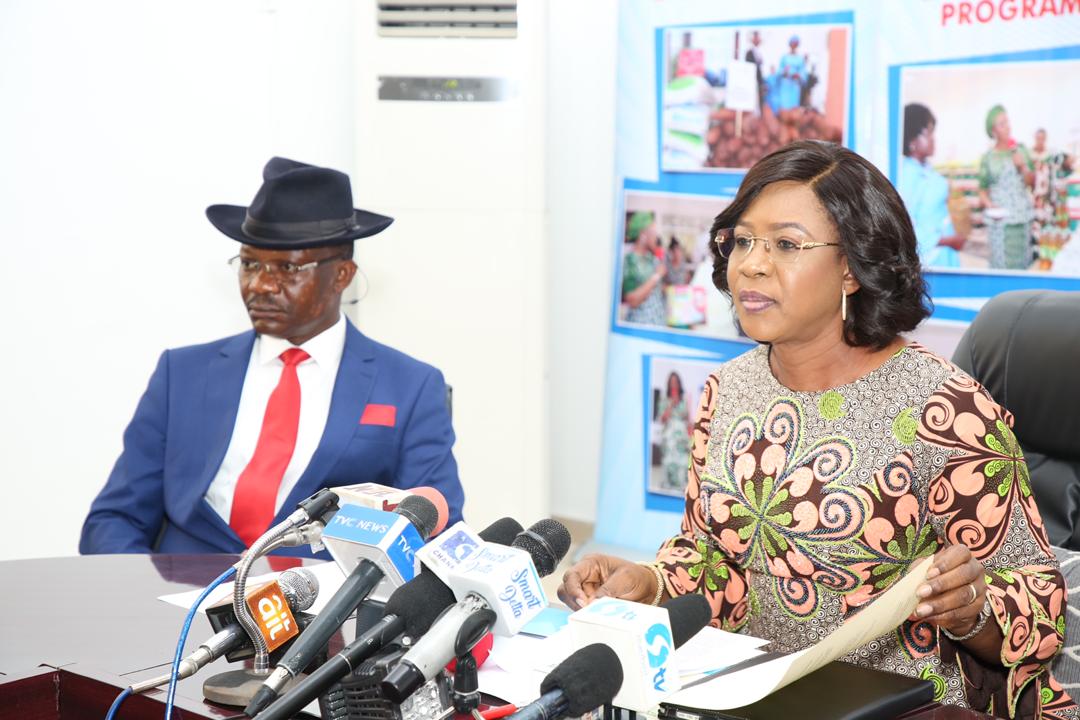 Dame Edith Okowa, wife of Gov. Ifeanyi Okowa of Delta has denied receiving N3.5 billion for her pet project, O’5 Initiative, from the Initiative for Global Development, a U.S based organization.
Dame Edith Okowa, wife of Gov. Ifeanyi Okowa of Delta has denied receiving N3.5 billion for her pet project, O’5 Initiative, from the Initiative for Global Development, a U.S based organization.
The governor’s wife made the denial in Asaba on Wednesday at a press briefing while reacting to stories making the round that IGD donated 10 million dollars (N3.5 billion) to O’5 Initiative.
Nigeria may import doctors to address shortage —Medical Guild
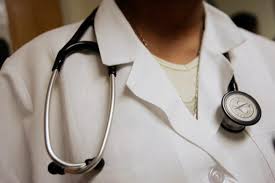 Chairman of the Lagos Medical Guild, Dr. Babajide Saheed, on Tuesday, urged the Federal Government to declare a state of emergency toward revitalizing the health sector.
Chairman of the Lagos Medical Guild, Dr. Babajide Saheed, on Tuesday, urged the Federal Government to declare a state of emergency toward revitalizing the health sector.
Saheed made the call during a media briefing in Lagos. He said that 59 years after Nigeria’s Independence, its health sector had deteriorated in healthcare delivery, resulting in medical tourism.
Healthcare performance after 59 years is at its lowest ebb
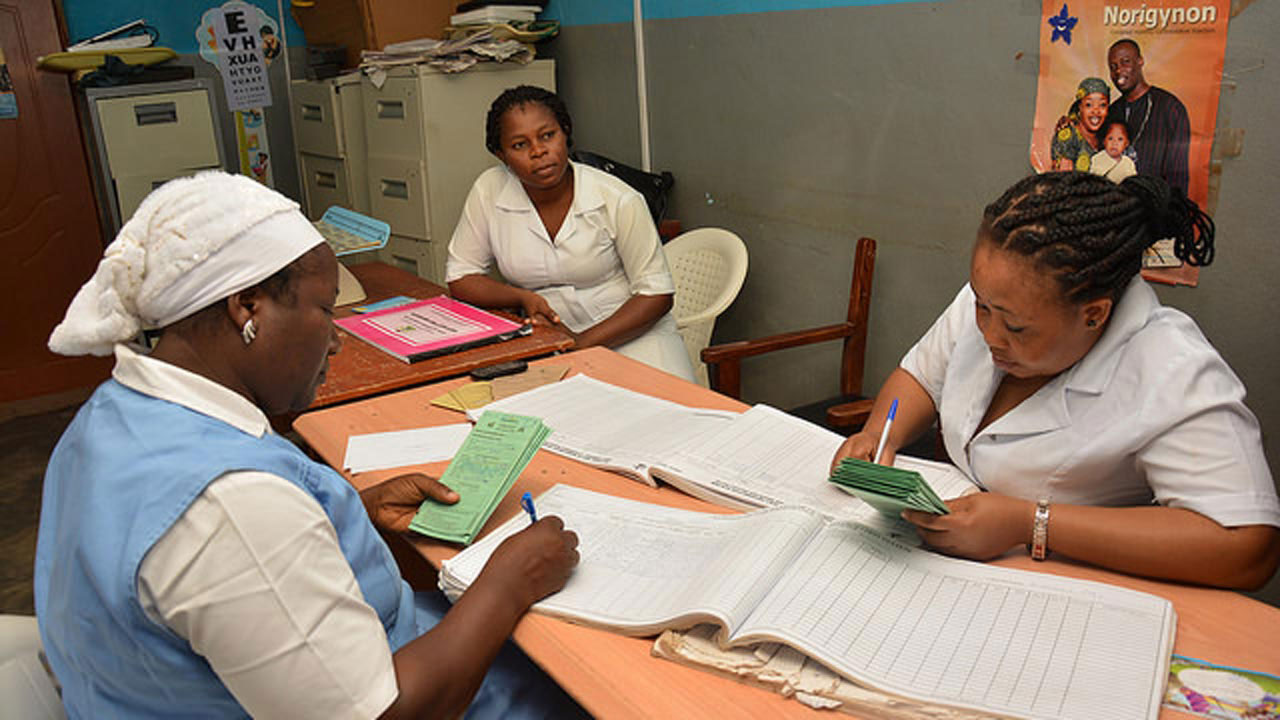 A critical review of the healthcare performance in Nigeria 59 years after Independence concluded that although the country has made some progress especially in infrastructure in tertiary hospitals, delivery and outcomes are at their lowest ebb.
A critical review of the healthcare performance in Nigeria 59 years after Independence concluded that although the country has made some progress especially in infrastructure in tertiary hospitals, delivery and outcomes are at their lowest ebb.
According to the review, fewer Nigerians can access quality healthcare today than they did years back and it blamed the situation on corruption, bad leadership, worsening level of poverty and low level of health insurance and financing.
Nigeria has a mental health problem
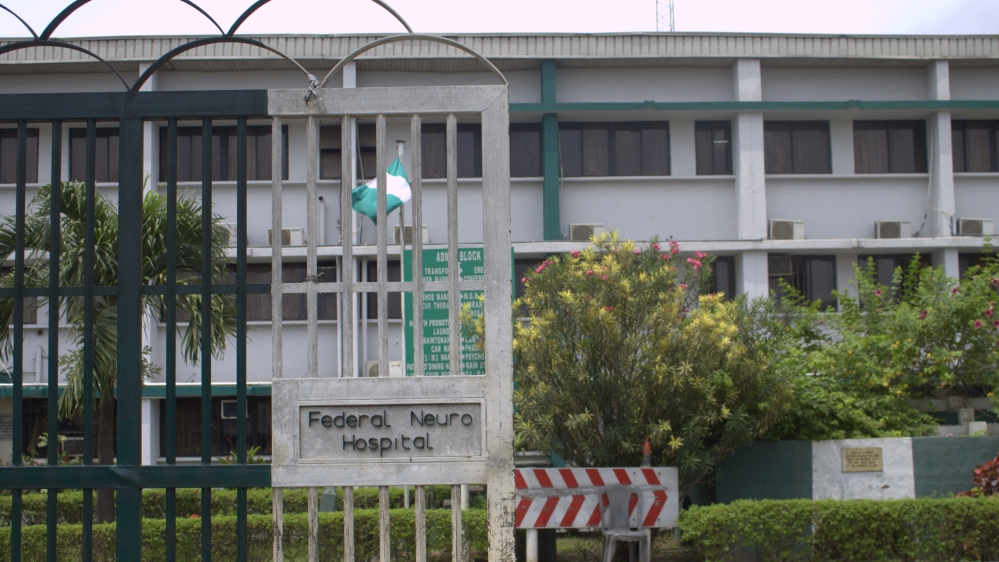 On the outside, the Federal Neuro-Psychiatric Hospital Yaba seems tranquil. But on the inside of this century-old facility - one of only a half-dozen psychiatric centers in Lagos, and the only one run by the federal government of Nigeria- tensions are running high.
On the outside, the Federal Neuro-Psychiatric Hospital Yaba seems tranquil. But on the inside of this century-old facility - one of only a half-dozen psychiatric centers in Lagos, and the only one run by the federal government of Nigeria- tensions are running high.
At the outpatient clinic, the crowd of people waiting to consult with doctors is so thick that it spills into the hallway. The the workload is so overwhelming that Dr Dapo Adegbaju, a psychiatrist rushing to attend to an agitated patient, has slept in the hospital for the past two nights. In the emergency ward, a patient named Jide languishes in a queue where he has been waiting since 7am.
It is not yet noon at Yaba hospital, but this is business as usual. The hospital saw a 22 percent increase in the number of new patients with different types of mental illnesses in 2018 - along with a 50 percent increase in the number of patients struggling with substance abuse.
One in four Nigerians - some 50 million people - are suffering from some sort of mental illness, according to the World Health Organization (WHO).
Today - World Mental Health Day - finds the country nowhere near equipped to tackle the problem.
There are only eight neuropsychiatric hospitals in Nigeria. With dire budget and staffing shortfalls prompting doctors to go on strike, leave the country, or quit the medical profession altogether, the prognosis looks as grim for psychiatric care at Yaba hospital as it does for Nigeria's healthcare system as a whole.
Mental health crisis
The seventh-largest country in the world, Nigeria has Africa's highest rate of depression, and ranks fifth in the world in the frequency of suicide, according to WHO. There are less than 150 psychiatrists in this country of 200 million, and WHO estimates that fewer than 10 percent of mentally ill Nigerians have access to the care they need.
The stark difference between Nigeria's need for better psychiatric care - and the resources available - is illustrated by the healthcare gaps at Yaba psychiatric hospital, which had a 2018 budget of 133 million naira ($372,000) - but only 13 million naira ($36,000) or less than 10 percent of that amount released by the federal government.
As a result of financial deficits and other challenges, Yaba hospital lost 25 - roughly half of its resident psychiatrists over the past four years. Some left to find work in other countries. Some went to private hospitals. Others simply quit. The facility now has 33 resident doctors and 22 consultants scrambling to address the needs of the more than 5,000 patients that they treat every year.
Each doctor now tends to 50 to 80 patients per day - including the 535 who fill the inpatient beds, and the 100 or more emergency cases who are rushed to the hospital each week.
Yaba's psychiatric clinic, once open from 9am to 1:30 pm, is now open until 5 pm so its doctors can try to catch up on their backlog of patients.
Critics say Yaba's shortfalls are not only affecting the quality of its services but the bottom lines of its patients and their families, too.
A father sitting next to his teenage daughter in the queue of patients tells Al Jazeera that he has spent 1,440 naira ($4, or half the average daily pay in Nigeria) to bring the girl in for that day's treatment. Because the journey - and the more-than-four-hour wait to see a doctor - are both so time-consuming, the exhausted-looking father has taken a full day off work - putting his family at financial risk - to give his daughter the psychiatric care that she needs.
Despite the long wait, the girl - who comes to Yaba about twice a month - will have only a short time to consult with her psychiatrist.
"A patient ought to spend between 25 and 30 minutes with the doctor, but ends up spending between four and five minutes," Yaba psychiatrist Dr. Afeez Enifeni tells Al Jazeera.
The father says he is determined to make the most of what the hospital can offer his daughter.
"Health," he insists, "is more important than anything else."
'Bearing the burden'
This past summer, Yaba hospital's Association of Resident Doctors (ARD) held a four-week strike to protest the conditions facing the facility's practitioners and patients.
"We could not continue bearing the moral burden of rendering below-par mental health services to our teeming patient population," ARD said in a statement it issued at the start of the strike.
ARD president Dr Enifeni told Al Jazeera that the main goal of the strike - which halted the admission of new patients for a month, required that emergency cases be turned away, and ended in promises to hospital employees that the facility has yet to fulfill - was to spur the hospital to hire more doctors.
Between 2014 and 2018, 40 doctors completed their six-year training at Yaba hospital - then sought employment elsewhere. Some may have left for financial reasons: Yaba doctors can face two-to-three month delays in being paid their wages. And due to a no-work, no-pay policy implemented by the Nigerian government, those who went on strike this summer may not receive the salaries they would have earned during the month that they were protesting.
Enifeni says the workload has become "unbearable" for the 33 psychiatrists and resident doctors who are still working at the hospital - one of a growing number of healthcare facilities in Nigeria where workers are going on strike.
Yaba spokeswoman Philomena Omoike said that though the hospital wrote to the Ministry of Health in June and requested 15 more doctors, that request had yet to be filled.
"The constant leaving of the doctors," she said, "makes recruitment harder."
Physician exodus
Roughly nine out of every ten doctors in Nigeria are seeking to leave the country and find work elsewhere, according to a 2017 poll by the nonprofit organization Nigeria Health Watch.
The desire for better opportunities - improved pay, facilities, work environments, professional satisfaction, tax breaks, and career progression - were among the reasons that psychiatrists and other doctors surveyed said they were hoping to emigrate.
Every week reports the General Medical Council of the United Kingdom, at least 12 doctors leave Nigeria to seek employment in the UK, where they can earn twice as much as they do at home - and where the number of practicing doctors from Nigeria has more than doubled in the past 13 years.
As Demola Alalade - a doctor who won a psychiatric residency slot in Nigeria but chose to emigrate to the UK - told Al Jazeera: "It's better to be a medical officer in a system that works than a psychiatrist in a system that doesn't."
'No funding from the government'
In part due to the migration of doctors to other countries, Nigeria has an estimated physician-patient ratio of one doctor to every 4,000 to 5,000 patients - six times smaller than the physician-patient ratio (one physician to every 600 doctors) that is recommended by WHO.
Nigeria Health Watch projects that with Nigeria's population on the rise (it is slated to double by 2050, according to the United Nations), the country will need to stop losing doctors and instead start bringing more in - at a rate of 10,605 per year - to keep pace with overall patient demand.
Nigeria's former Minister of Labour and Employment, Dr Chris Ngige, said in April that the country had "more than enough" doctors.
But practitioners at Yaba - and their patients - disagree.
They say Nigeria needs to start spending the money it has pledged to devote to psychiatry services and other forms of healthcare, too.
Along with 20 other member nations of the African Union, Nigeria signed the 2001 Abuja Declaration that promised to earmark 15 percent of its federal budgets for healthcare.
2011 WHO report found Nigeria had made "insufficient progress" towards that target. And by 2018, the country had allocated just 3.95 percent of its budget to funding its Ministry of Health.
In Nigeria's recently proposed 2020 budget, President Muhammadu Buhari allocated just 4.3 percent of the total budget for health.
For the physicians, residents, and patients of Federal Neuro-Psychiatric Hospital Yaba, the money and support for which they have been long been waiting cannot come too soon.
"There has been an increase in patients," says Omoike, "but no funding from the government."
Source: Aljazeerah
Rising emigration of pharmacists
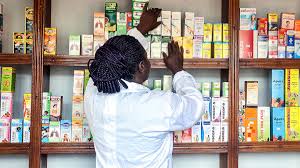 The Pharmaceutical Society of Nigeria (PSN) has expressed fear on the rising number of pharmacists who are emigrating from Nigeria to seek a “better life abroad.”
The Pharmaceutical Society of Nigeria (PSN) has expressed fear on the rising number of pharmacists who are emigrating from Nigeria to seek a “better life abroad.”
Speaking with pressmen at the commencement ceremony of the Pharmacy Week 2019, Chairman of PSN, Oyo State chapter, Abiodun Ajibade, said: “Pharmacists population in Nigeria is very low, this is in spite of the great potentials for growth occasioned by continuous emigration of Pharmacists whom Nigeria has spent heavily to train as a result of poor practice environment.”
‘Nigeria accounts for 23 per cent of deaths from maternal mortality globally’
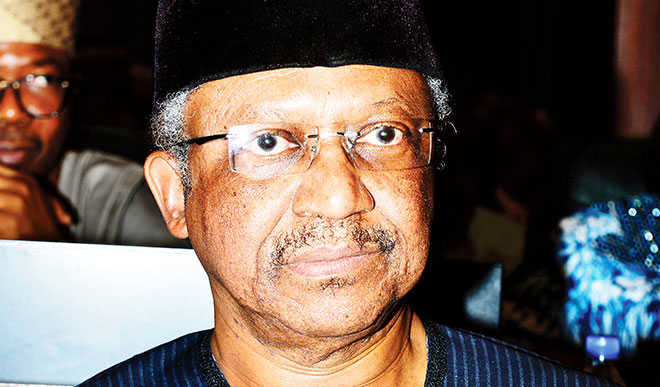 The Lead Consultant of the Maternal Safety Data (MSD), an NGO, Mary-Ann Etiebiet, has said Nigeria contributes 23 percent of deaths from maternal mortality, globally.
The Lead Consultant of the Maternal Safety Data (MSD), an NGO, Mary-Ann Etiebiet, has said Nigeria contributes 23 percent of deaths from maternal mortality, globally.
Mrs Etiebiet, who spoke on Thursday in Abuja, at the 2019 “Future of Health Conference”, expressed worry over the prevalence of such deaths in Nigeria. “No woman should die while giving birth to a child; MSD is focused on creating a world where no woman has to die at childbirth,” she said at the conference that has the theme: “Time to Focus on Quality Healthcare: Improving Outcomes”.
National Health Dialogue: How traditional institutions can help achieve universal health coverage – Emir
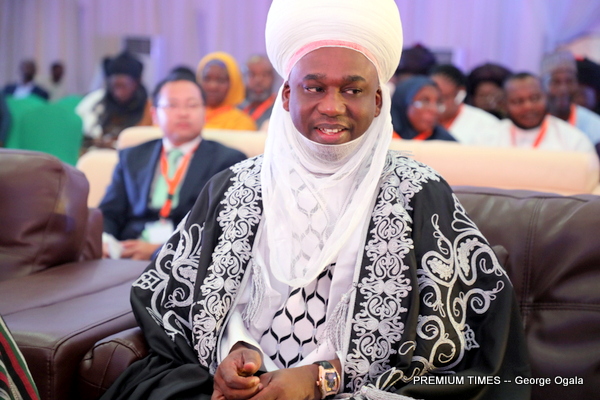 Traditional institutions have a role to play for Nigeria to achieve universal health coverage in three areas of access, quality, and equity. The Emir of Gombe, Shehu Abubakar, said this at the annual National Health Dialogue that ended in Abuja on Tuesday.
Traditional institutions have a role to play for Nigeria to achieve universal health coverage in three areas of access, quality, and equity. The Emir of Gombe, Shehu Abubakar, said this at the annual National Health Dialogue that ended in Abuja on Tuesday.
He said to achieve all the three areas, engaging policymakers to ensure healthcare services are accessible and affordable is a paramount requirement.
World Thrombosis Day: Haematologist Advises Air Travellers to Take Less Alcohol
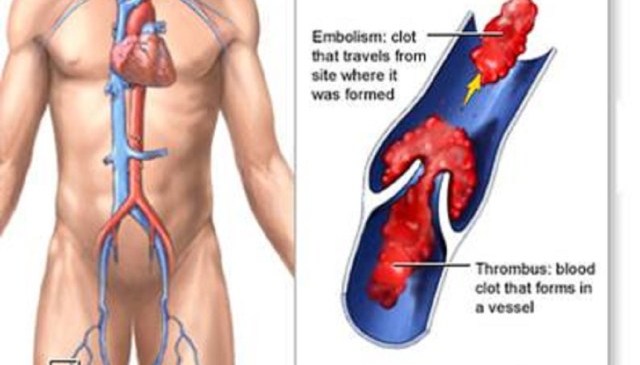 Prof. Sulaiman Akanmu, a Professor of Haematology and Blood Transfusion at the College of Medicine, University of Lagos, advised air travelers to know what is thrombosis and the risks.
Prof. Sulaiman Akanmu, a Professor of Haematology and Blood Transfusion at the College of Medicine, University of Lagos, advised air travelers to know what is thrombosis and the risks.
He said that knowing the dangers would guard against coming down with thrombosis, a deadly condition caused by the formation of potentially deadly blood clots (blood that has turned into a solid form) within the blood vessels. Akanmu gave the advice at a media briefing organized by Sanofi, a multinational pharmaceutical company, to mark the 2019 World Thrombosis Day on Sunday.
‘We’ll Partner NAFDAC To Rid Oyo Of Illicit Drugs’
 The Governor of Oyo State, Seyi Makinde said on Monday that the state government was ready to partner with the National Agency for Foods, Drugs, Administration, and Control (NAFDAC) to rid the state of illicit drugs. Governor Makinde, who stated this while receiving the Director-General of NAFDAC, Prof Mrs. Mojisola Adeyeye in a courtesy visit to his office, said that NAFDAC was very crucial to the sustenance of sound health in the country.
The Governor of Oyo State, Seyi Makinde said on Monday that the state government was ready to partner with the National Agency for Foods, Drugs, Administration, and Control (NAFDAC) to rid the state of illicit drugs. Governor Makinde, who stated this while receiving the Director-General of NAFDAC, Prof Mrs. Mojisola Adeyeye in a courtesy visit to his office, said that NAFDAC was very crucial to the sustenance of sound health in the country.
A statement by the Chief Press Secretary to Governor Makinde, Mr. Taiwo Adisa, also indicated that the state government was already warming up to take full advantage of the Dry Port being constructed in Ibadan. The governor said: “Health is one of the pillars which this administration is resting on. We believe if there is security and a healthy body, we can go out to work and move from poverty to prosperity.”






